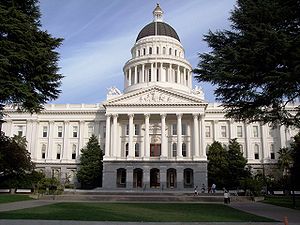|
Listen to this Article
|

The details of these and several other highly anticipated New Year laws are discussed below.
FEHA NOW PROTECTS BREASTFEEDING – AB 2386
As we all know, included in the numerous protections provided by FEHA is the prohibition of certain discriminatory employment practices on the basis of sex. When it comes to legal protections under the act, the term “sex” is understood to include gender, pregnancy, childbirth, and pregnancy-related medical conditions. That is, until today. With the passage of AB 2386, the definition of “sex” under FEHA has been expanded to include breastfeeding and breastfeeding-related medical conditions.
FEHA RELIGIOUS ACCOMMODATION ENHANCED – AB 1964
Prior to this year, FEHA’s reasonable accommodation requirement concerning religious beliefs offered little clarity regarding certain aspects of religious expressions, particularly those involving dress and grooming standards. Prior to the passage of AB 1964, it was not certain whether the law’s coverage of “beliefs and observances” included these practices. Furthermore, the requirement that employers reasonably accommodate religious practices was formerly governed by the Title VII standard of undue hardship.
However, AB 1964 not only explicitly expands the “beliefs and observances” definition to include religious dress and grooming standards; it also replaces the Title VII standard of undue hardship with FEHA’s broader “significant difficulty or expense” definition when it comes to determining what is reasonable in terms of employer accommodations. To give further substance to the new accommodation standard, AB 1964 specifically prohibits the use of segregation – for example, making a front-of-house worker take a back-of-house position – by employers to meet that obligation.
CLARIFICATION REGARDING NONEXEMPT EMPLOYEE SALARIES – AB 2103
Back in 2011, the California Court of Appeals handed down its ruling in Arechiga v. Dolores Press, 192 Cal.App.4th 567 (2011), in which it determined that an “explicit mutual wage agreement” offering a fixed salary for a 60-plus hour work week was consistent with state overtime statutes and that no additional overtime compensation was warranted. In other words, the ruling permitted employers to include overtime pay in the fixed salaries they offer to employees in order to avoid compensating workers for additional overtime worked.
Disagreeing with the Court’s ruling, the California legislature passed AB 2103, which overturned Arechiga by requiring that fixed salaries to non-exempt employees only include regular, non-overtime hours. With the new law in effect today, previously negotiated fixed salary agreements that include regular as well as overtime pay will also be nullified.
SOCIAL MEDIA USERNAMES & PASSWORDS LEGALLY PROTECTED – AB 1844
Following last year’s long controversy over the right of employers to require or request Facebook and other social media login information from employees and applicants, the California legislature did what Congress could not. After the House’s rejection of an amendment that would have definitively barred such behavior by employers, the State Assembly proposed and successfully passed AB 1844, which offers a much broader definition for “social media” than would have been included had the federal amendment been adopted.
According to the bill, “social media” goes further than popular outlets such Facebook and Twitter by including any “electronic service or account, or electronic content, including, but not limited to, videos, still photographs, blogs, video blogs, podcasts, instant and text messages, email, online services or accounts, or Web site profiles or locations.” To be sure, the new law places nearly all Internet activity involving a username and password under the protective umbrella of social media. In so doing, AB 1844 legally prohibits employers from terminating, disciplining, threatening, or retaliating against employees and applicants who refuse to surrender their private login information.
Despite its breadth, however, the new bill is not all-encompassing. One key – and arguably reasonable – exception included in the bill allows employers to request social media login information from employees being investigated for professional misconduct and illegal activity.
WRITTEN CONTRACTS FOR COMMISSION PAY – AB 1396
One final noteworthy protection coming into effect today is the requirement for commission agreements to be in writing. Under AB 1396, employers will now be required to provide employees with a signed copy of the agreement and retain a signed receipt from the employee. Furthermore, the new law specifically requires that these agreements include details outlining the means by which commission is calculated and ultimately paid to employees. Acting as a counterbalance, the state legislature also passed AB 2675, which exempts from the new rule employees who receive temporary incentive pay that increases but never decreases agreed upon compensation.
As employees readily welcome and employers prepare to comply with these newly enacted legal protections, we applaud the great strides being made in 2013 to ensure that California employees are provided with the safe, stable, and ultimately just workplace that they deserve.




